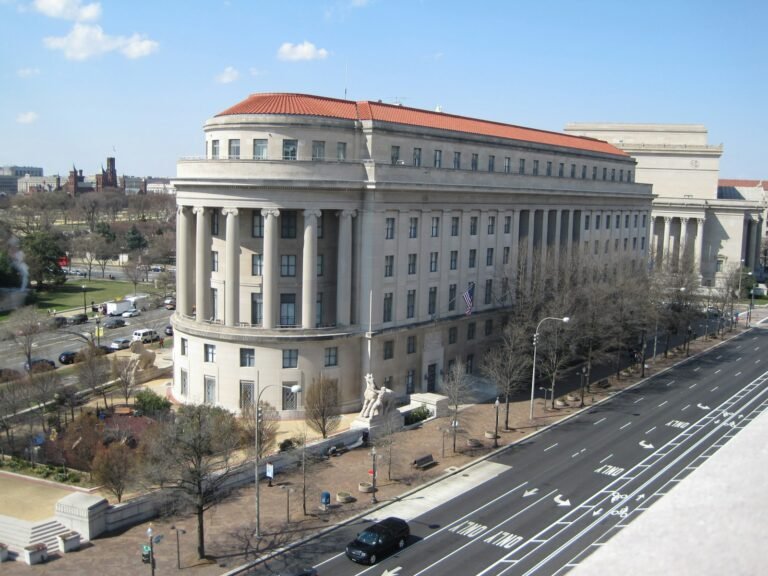
Maryland’s Attorney General, Anthony G. Brown, has joined forces with 24 other attorneys general and governors in a legal fight against President Donald Trump’s attempt to deploy the National Guard to Chicago without the consent of Illinois state officials.
In an amicus brief submitted on Monday to the U.S. Court of Appeals for the Seventh Circuit, the coalition contends that Trump’s unilateral move is illegal, unconstitutional, and poses a risk to fundamental principles of federalism and civilian oversight of the military.
“President Trump’s use of the National Guard to patrol American cities without the consent of state leaders is an outrageous abuse of power based on politics, not public safety,” said Maryland’s Attorney General Anthony G. Brown. “Without intervention from the courts, this unconstitutional, unlawful, and un-American politicizing of our military could become the new normal.”
“The President continues to deploy an unprecedented amount of force against our cities and people, and it comes at a tremendous cost. As California demonstrated during our own trial — and as the city of Los Angeles has experienced over the last four months — the illegal militarization of American cities terrorizes our residents, drains our troops, and tanks our local economies,” said California Attorney General Bonta. “I stand with Attorney General Raoul and ask the court to reject the Trump Administration’s effort to throw out an order demanding them to halt their illegal militarization of communities in Illinois. The escalating use of American communities as a training ground for the military must stop now.”
“Every state, red and blue, should be pushing back against the president’s illegal use of the military to intimidate Americans,” said Washington State Attorney General Nick Brown. “It’s terrible that we have to spend this much time protecting Americans from their own president, but there is no other option with so much at stake for our future.”
The brief supports a ruling from a lower court that halted the deployment and calls on the appeals court to dismiss the Trump administration’s plea to reverse that ruling. Although the court permitted a limited federalization of the Guard during the ongoing legal proceedings, it rejected the administration’s request for an immediate stay that would have allowed full deployment in Illinois.
The coalition’s submission contends that the use of federal troops in civilian areas erodes public trust and obscures the constitutional boundary between military and civilian authority—a boundary intentionally established by the Founding Fathers to avert power abuses.
Philadelphia Governor Shapiro said his action is about protecting both public safety and the rule of law.
“I filed that amicus brief last night to make very, very clear that the Pennsylvania National Guard, under the leadership of General Pippy, is under my command. I’m the Commander in Chief of the Pennsylvania National Guard, and we use the Guard responsibly. We are grateful to our Guardsmen and women for the important work they do here in the Commonwealth.
“I think the way the President has chosen to deploy the guard in other states, and in at least one case, deploy the guard of one state into another state—Texas into Illinois—is extremely dangerous.
“I will tell you, as both the Commander in Chief of the Pennsylvania National Guard, along with the former chief law enforcement officer of this commonwealth, Pennsylvanians’ safety is paramount. And the way in which the President of the United States has engaged on this Guard issue does not make us more safe. It creates chaos and real danger in our communities.
“I’ve been working tirelessly to make sure we hire more police in Pennsylvania, and we’re at about 1,500. I pledged to get to 2,000 and we will surpass that.
“We’ve invested hundreds of millions of dollars in violence prevention initiatives, here in the Commonwealth of Pennsylvania, and violent crime is down 42 percent across this Commonwealth.
“If the President really wants to help on safety, he should invest more in policing here in Pennsylvania. He should invest more in violence prevention, here in Pennsylvania. He should not attempt to deploy the Guard against my wishes.”
“The Trump Administration’s weaponization of the National Guard, including against American citizens, is designed to provoke disorder, silence dissent, and instill fear,” said Massachusetts Attorney General Andrea Joy Campbell. “This federal interference significantly undermines local law enforcement and its efforts to build trust and advance public safety. I stand firmly with Illinois in resisting this egregious abuse of power.”
“Trump is deploying American soldiers against American families on American soil, and that is both extremely dangerous and plainly illegal. We’re fighting back in courts across the country to protect public safety, our constitution and our state sovereignty,” said Connecticut Attorney General Tong.
“I’m proud to stand firmly in support of Oregon, as well as California and the District of Columbia, in their challenges to Trump’s clearly illegal and entirely politicized deployment of troops to American cities like Portland,” Minnesota Attorney General Keith Ellison said. “I want Minnesotans to know that we will be ready for whatever the president may do — we’re reviewing all possible legal strategies, we’re in regular contact with the states going through this now, and we’ll be ready to uphold the law, including the Posse Comitatus Act of 1878 that bars the president from using the military as a police force.
“It’s unprecedented and outrageous that we have to plan for this. Every Minnesotan and every American should be concerned that we’re moving further and further away from the realm of democracy,” Minnesota Attorney General Keith Ellison added.
This represents the fourth occasion in recent months where the Trump administration has sought to deploy the National Guard to states without the governors’ consent, following similar actions in California, Washington, D.C., and Oregon.
Joining Maryland in this legal challenge are the attorneys general from Arizona, California, Colorado, Connecticut, Delaware, the District of Columbia, Hawai‘i, Maine, Massachusetts, Michigan, Minnesota, Nevada, New Jersey, New Mexico, New York, North Carolina, Oregon, Rhode Island, Vermont, and Washington. The governors of Kansas, Kentucky, and Pennsylvania have also added their support.
The coalition is appealing to the court to maintain the lower court’s ruling and prevent what they perceive as a perilous undermining of state sovereignty and democratic principles.


